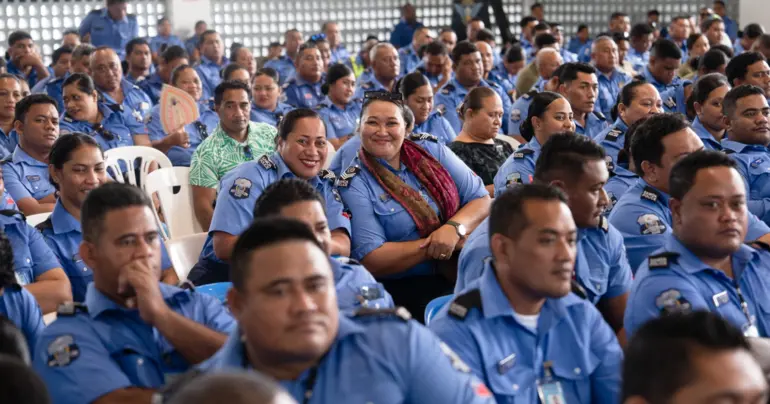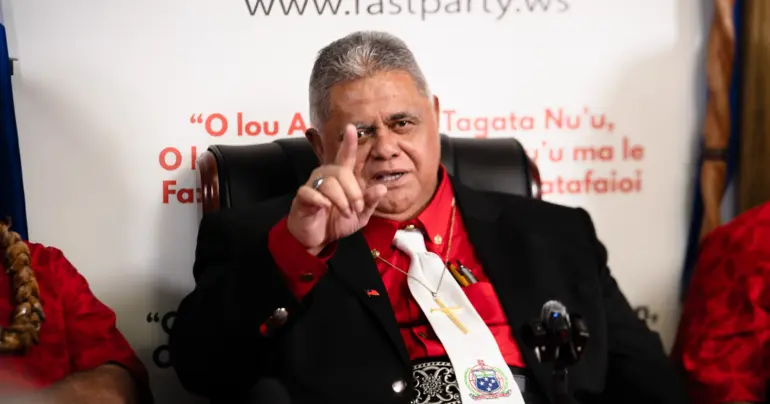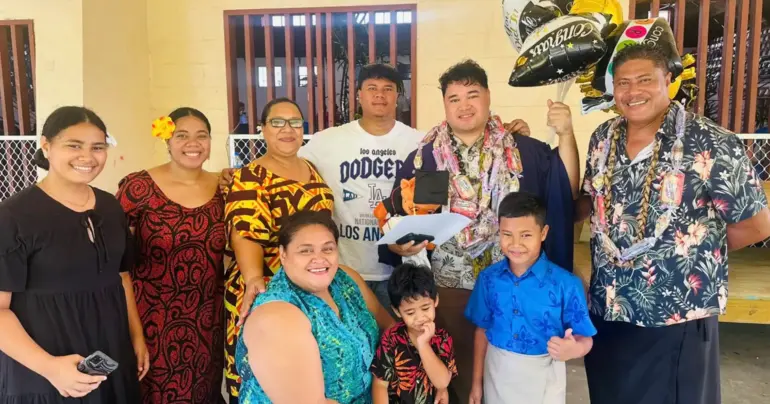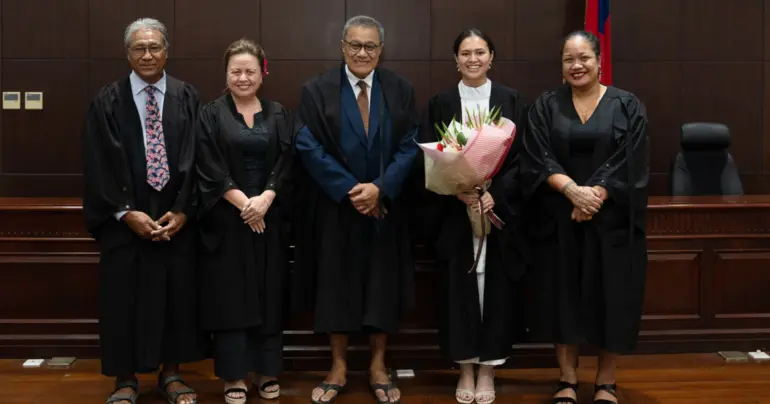Education Ministry trains to renew tests
 By Adel Fruean
•
18 April 2021, 11:00AM
By Adel Fruean
•
18 April 2021, 11:00AM
Samoan education officers have completed the first phase of a three-month training course designed to overhaul how school students' performance is assessed through tests.
The training was an initiative of the Pacific Community (S.P.C.) and put on for specialist officers from the Ministry of Education, Sports and Culture (M.E.S.C.).
Some of the M.E.S.C. officers who underwent the training were new to the specialised area of developing tests and assessments, part of the Ministry’s Assessment and Examinations Division.
The division focuses on the development of new assessments and test blueprints. (A test blueprint is a framework or outline of learning outcomes to be tested in an examination).
M.E.S.C.'s Chief Executive Officer, Afamasaga Dr. Karoline Afamasaga-Fuatai, thanked the S.P.C. Educational Quality and Assessment Programme (E.Q.A.P.) for its quick response to their request to provide training support for the Ministry's new team.
Afamasaga said that the restructure meant that the Ministry now had a division dedicated to the creation of new assessment items.
Previously, the officers were responsible for designing curriculums and designed assessments on the side. The Ministry's focus on overhauling test designs has led to the creation of the National Tool Development Unit, which is dedicated to refreshing the education system's test material.
The most experienced officer in the unit, Toloai Tipi, said that the creation of a new stand-alone unit recognised the importance of conducting additional assessment work. The training, he said, was a refresher course for him, but certain aspects were new.
He said that everything in the training was valuable to the Ministry's work.
“As a tool developer, the ability to read and understand data from [...] helps a lot,” he said in a statement issued by the S.P.C.
The new assessment methods include so-called variable maps, or assessments designed to better reflect a student’s abilities and allow teachers to analyse whether their tests are targeting students as they should be.
He said that variable maps provide reliable results which reflect the influence of the types of question designed and used in a test, telling a story about how difficult a question is and the capability of a student to answer it.
The item maps reflected the spread of students’ abilities at different cognitive levels. Tool developers analyse these maps to ensure the assessment items are targeted well.
Other tool developers undergoing the training are Aloiafi Ma’alo and Leutogi Faleva’ai.
Ms. Faleva’ai, who taught visual arts and English for nine years before working in the Ministry as a curriculum officer for the past 10 years, said training on the use of data to gain insights into and improve the quality of assessments had intrigued her most.
“Everything (in the training) was exciting, but [...] reading data [...] stands out the most to me.”
She said that her colleagues from the Ministry's data unit joined the training whenever possible.
The team’s training in the analysis and development of item maps was conducted by E.Q.A.P. assessment officers Adrian Alamu and Tuila Seniloli.
Mr. Alamu said the first phase of training focused on the fundamentals of developing targeted test instruments, which included analysis.
He said the training was progressing well and the Samoan team was finding the training rewarding.
The E.Q.A.P. curriculum and assessment team's leader, Mere Vadei, said the development of curriculum and assessments were interrelated.
“The two areas of work require different skill sets, but a good knowledge of the curriculum is critical to good item development,” she said.
“It is not uncommon to find people who are skilled in both and who do both. However, the workload tends to be too heavy.”
Ms. Vadei added that while having separate teams meant quality time could be dedicated to each area of work, the two groups will meet regularly to ensure their work was in sync.
Samoa has transitioned to fully adopt a multiple-choice item format for its low-stake examinations, except for story composition tests. For the multiple-choice scripts, students’ answers are captured by a special scanner and digitally processed for scoring.
Story writing remains scored manually.
“I still train scorers to score story writing separately and (these are) scanned later,” said Tipi, who is the Ministry's primary developer of assessments for languages and social studies.
After consultation earlier this year, a training schedule was organised in blocks of two-hours per day. The training is spread over three months.
Mr.Tipi was part of previous training in coding and writing conducted by E.Q.A.P. Faleva’ai and Ma’alo are the primary assessment developers for T.V.E.T. (Technical and Vocational Education and Training), mathematics, and science, respectively.
The next phase of the training will focus on developing new assessments.
 By Adel Fruean
•
18 April 2021, 11:00AM
By Adel Fruean
•
18 April 2021, 11:00AM











